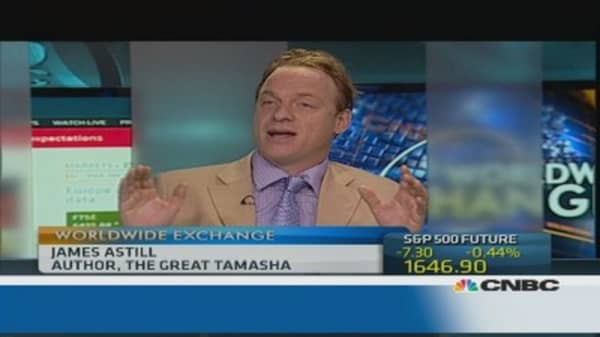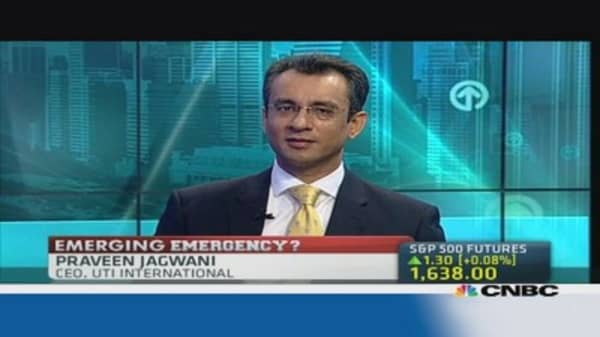India has been hit by a wave of growth downgrades, with many analysts predicting the slowdown to worsen in the coming months, after gross domestic product (GDP) figures on Friday showed second quarter expansion falling to lowest rate in four years.
Industry watchers CNBC spoke to are now predicting full year growth ending March 2014 to fall short of their earlier targets of between 5.0 percent and 5.5 percent, with one bank calling for growth to slow to 3.7 percent. This is a marked deceleration from the 9 plus percent growth rates seen in 2010.
"This (April-June) is not the bottom. High-frequency indicators, such as HSBC's PMI (purchasing managers index) indices and business sentiment indicators suggest that the growth momentum eased further during the July-September quarter in both the manufacturing and services sectors," Leif Eskesen, chief economist, India and ASEAN at HSBC wrote in a note on Monday after the bank cut its growth forecast to 4 percent from 5.5 percent.
(Read more: India's woes deepen as GDP misses expectations)
India's GDP growth slowed to 4.4 percent in the April-June quarter from the year before, underperforming market expectations of 4.6-4.7 percent, driven by a contraction in the country's mining and manufacturing sectors. Investment and private consumption – which grew at its slowest pace since 1999 – were also notable weak spots.






